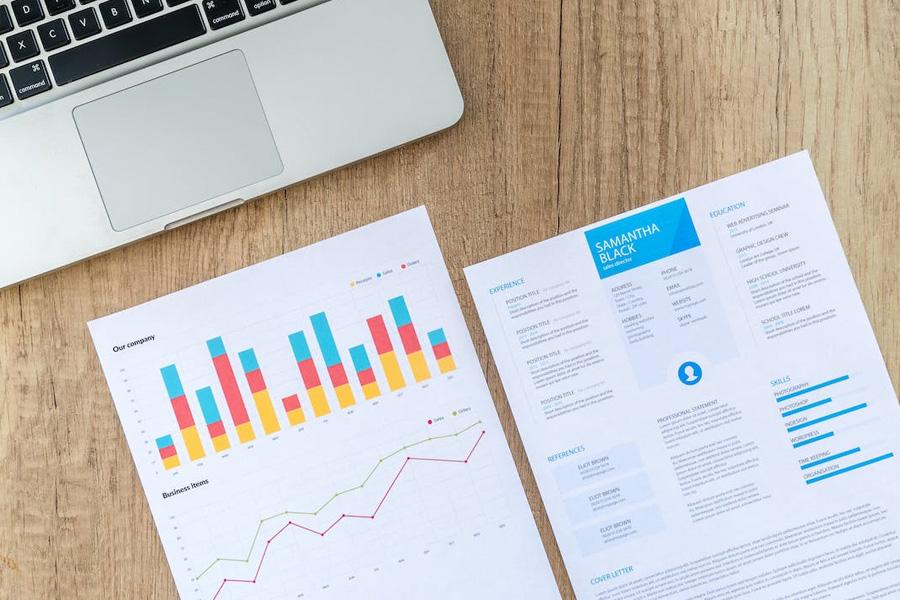When it comes to search engine optimisation (SEO), one of the critical factors that can…
SEO vs PPC

5.
SEO vs PPC
SEO vs PPC is a hot topic, businesses of all sizes are recognizing the importance of online marketing, especially when it comes to search engines. Currently, the majority of website traffic is driven through search engines like Google, rather than direct links or other methods. Recent research indicates that 82% of people discover websites through search engines, underscoring the need for a strong online presence. However, there are instances where PPC (Pay-Per-Click) can also be an effective method for driving traffic to your site.
To succeed with either approach, marketers must understand the strengths and weaknesses of each method.
 When should you use SEO?
When should you use SEO?
SEO, or Search Engine Optimization, encompasses strategies aimed at ranking a website on the first page of major search engines, primarily Google and to a lesser extent Bing.
SEO is crucial for online businesses as 82% of website traffic is generated through search engines. Google, with over 400 million searches per day, is the dominant search engine.
SEO is appropriate when consistent, long-term results are desired. Achieving a high ranking on search engine results pages takes time and effort. Be cautious of organizations claiming to deliver quick results; getting to the top of Google or Bing requires sustained effort. However, once your website reaches a top position using legitimate SEO methods, you can expect continued traffic. By maintaining and improving your SEO campaign, you can remain at the top for an extended period and enjoy long-term benefits.
SEO is also ideal for building an authoritative site. An authority website is a trusted resource centre within a specific sector or niche. It becomes the go-to website for information within that niche, generating substantial traffic based on URL recall alone. Building an authority site requires consistently generating traffic to your pages, and gradually establishing a reputation until it becomes the leading source in its market. Achieving this goal necessitates creating quality content and employing smart SEO practices. Factors such as traffic volume, consistency, page rank, search engine rankings over time, and link popularity contribute to building authority, all falling within the realm of SEO. Creating and promoting the content of this calibre demands significant time and financial investment.
 SEO vs PPC, When is it best to use PPC?
SEO vs PPC, When is it best to use PPC?
Pay-per-click marketing involves advertising on search engine results pages, where you bid to have your ads displayed among the sponsored results when users search for keywords relevant to your business.
The term “pay per click” reflects the fact that you pay for each click your ad receives.
The main PPC platforms include Google AdWords, Yahoo Advertising, and Facebook’s advertising platform, with niche-specific options also available. For example, PlentyOfFish.com offers an effective advertising option for dating offers.
PPC is valuable in several scenarios. Firstly, it delivers immediate results. Once your PPC campaign is approved and you’ve placed competitive bids, your ads will be displayed to millions of people within minutes. This makes PPC ideal for product launches, seasonal promotions, event-focused marketing, and similar time-sensitive online campaigns.
 PPC also excels in targeting specific audiences. Unlike SEO, PPC allows you to narrow down your prospects based on demographic data. Many PPC platforms, including social media sites, enable you to target audiences by age range, gender, income bracket, education level, marital status, and even hobbies. This precision targeting makes PPC a powerful tool for reaching the specific audience your business needs and driving them to your website.
PPC also excels in targeting specific audiences. Unlike SEO, PPC allows you to narrow down your prospects based on demographic data. Many PPC platforms, including social media sites, enable you to target audiences by age range, gender, income bracket, education level, marital status, and even hobbies. This precision targeting makes PPC a powerful tool for reaching the specific audience your business needs and driving them to your website.
PPC is particularly useful when promoting time-sensitive offers. SEO campaigns often have a longer development period, while PPC can deliver traffic in a matter of minutes. If you have an offer that expires within a few days, PPC can ensure you receive the necessary traffic quickly.
Furthermore, PPC can compensate for websites that lack SEO optimization. SEO requires content-rich, regularly updated websites to signal relevance to search engines and maintain high rankings. PPC campaigns can generate traffic for websites that don’t align with SEO requirements.



